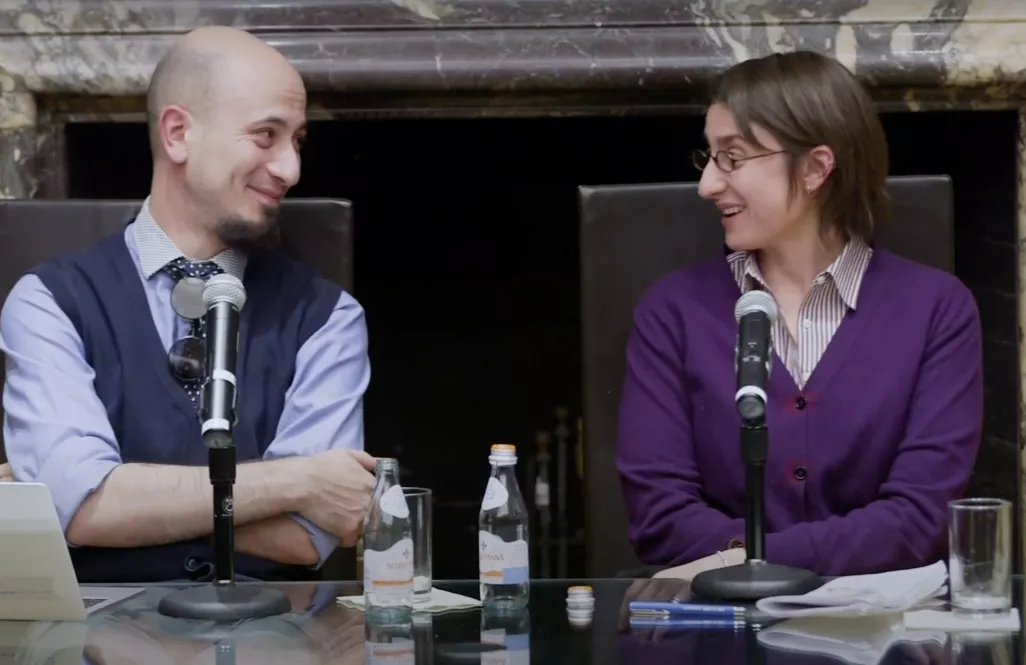Prof. Alessandro Giammei Co-Curates Translation of Letters of Virginia Woolf

Assistant Professor of Italian Alessandro Giammei and Italian writer Chiara Valerio have co-curated and co-translated an edition of the letters of Virginia Woolf and Lytton Strachey for the Italian publisher nottetempo.
Many of the letters and passages in Virginia Woolf, Lytton Strachey Ti basta l'Atlantico? Lettere 1906-1931 are being published in Italian for the first time.
A book in English with a collection of the letters between Woolf and Strachey does exist, but since it came out in 1956 (when most of the people mentioned in the letters were alive) and was curated by Woolf’s husband and Strachey’s brother, it had many cuts, omissions, and names changed.
“We did a philological work of restoration of the whole epistolary, using the source letters (which are mostly at Smith College),” explains Giammei. “As a result, some passages and some letters will be published for the first time in Italian. Most letters by Woolf were translated into Italian in a multi-volume collection of her whole epistolary production, but none of Strachey’s letters were ever translated into Italian.”
Woolf, who is among the most important writers of the 20th century, and Strachey, who is seen by many as the inventor of the modern narrative biography, were the core of the Bloomsbury Group.
“They were both incredible letter writers, and their respective collected letters have always been popular and reprinted, but the specific exchange between them is among the most beautiful, intense, and filled with literary and social gossip,” says Giammei.
Valerio has previously translated three of Woolf’s lesser known books in Italian (Flush, Freshwater, and Between the Acts). Giammei had studied Strachey’s biographies of Victorians and of Queen Victoria herself when he wrote his first academic book, which revolved around the Italian reception of Victorian nonsense poetry.
“At a New Year’s Eve party in Rome we talked for an hour about Virginia and Lytton and we decided to do this book—also, to be honest, because of an identification with these two figures,” says Giammei.
The pair made the book "remotely" between Italy and the U.S. Giammei worked with the library staff at Smith College to see digitizations of the original manuscript letters. Chiara translated only Woolf's letter and Giammei translated only Strachey's, as if they were doing a role-game.
"We translated one letter at a time, sending them to each other as if we were corresponding. Our essay at the beginning of the book is also written in the form of letters between us," says Giammei.
“It was very interesting to see how most of the letters have, as their historical background, a time so strangely similar to ours: the time of the Spanish Flu, of the great opposition between fascism and democracy in Europe, of economic crises and crises of classical intellectual/humanistic paradigms.”
Giammei works on trans-historical and interdisciplinary topics at the crossway of textual and visual studies, modernity and the Renaissance, and classicism and vanguardism. His first book, Nell’officina del nonsense di Toti Scialoja, was published in 2014 and won the Harvard edition of the Edinburgh Gadda Prize in 2015.
[[{"fid":"46056","view_mode":"default","fields":{"format":"default","alignment":"","field_file_image_alt_text[und][0][value]":"\"\"","field_file_image_title_text[und][0][value]":false},"type":"media","field_deltas":{"1":{"format":"default","alignment":"","field_file_image_alt_text[und][0][value]":"\"\"","field_file_image_title_text[und][0][value]":false}},"link_text":null,"attributes":{"alt":"\"\"","class":"media-element file-default","data-delta":"1"}}]]